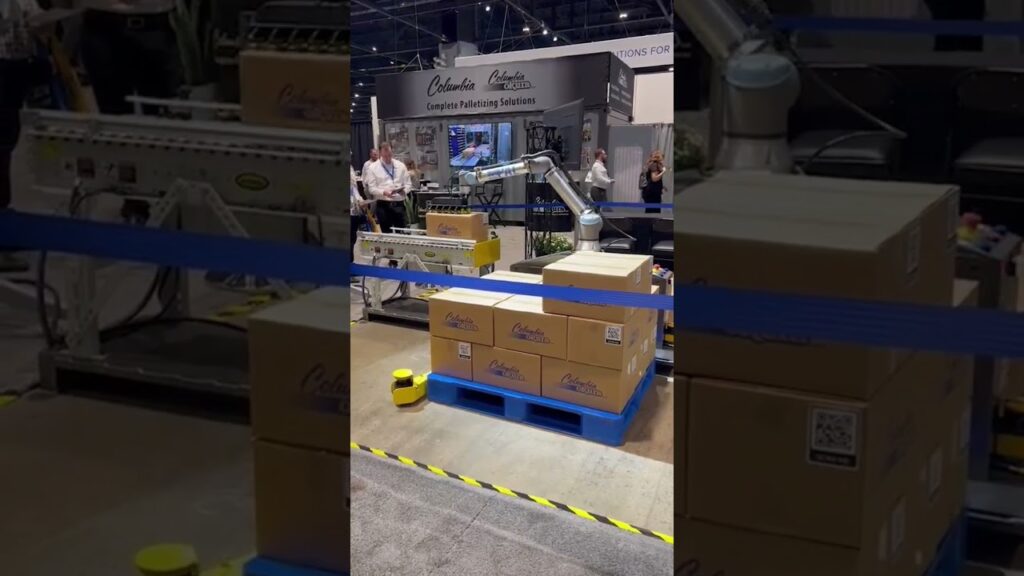# Title: How Industrial Robots are Revolutionizing Manufacturing Processes
Industrial robots have revolutionized the manufacturing industry in recent years, delivering increased efficiency, productivity, and accuracy in production processes. These advanced machines are replacing traditional human labor, offering numerous benefits to companies worldwide. In this article, we will explore the role of industrial robots in manufacturing and examine their impact on the industry as a whole.
## Introduction
From automotive assembly lines to electronics manufacturing, industrial robots have become an integral part of modern production facilities. These robots are designed to perform repetitive tasks with precision and speed, minimizing human error and maximizing productivity. As technology continues to advance, industrial robots are becoming smarter and more adaptable, leading to significant improvements in manufacturing processes.
## The Rise of Industrial Robots in Manufacturing
In recent decades, the manufacturing industry has witnessed a remarkable shift towards automation. Traditional manual labor has been gradually replaced by industrial robots, leading to greater efficiency and cost-effectiveness. These machines offer several advantages over human workers, such as:
1. Precision and Accuracy: Industrial robots are programmed to perform tasks with exceptional precision, reducing the margin for errors in the manufacturing process. This accuracy translates into higher quality products and increased customer satisfaction.
2. Efficiency and Speed: With their high-speed capabilities, industrial robots can complete tasks much faster than humans. This leads to shorter production cycles, increased output, and improved overall efficiency.
3. Safety: By taking over dangerous and hazardous tasks, industrial robots help ensure the safety and well-being of workers. They can operate in environments that may be harmful or inaccessible to humans, reducing the risk of workplace accidents.
4. Flexibility: Industrial robots can be easily reprogrammed to perform different tasks, enabling manufacturers to adapt to changing production requirements quickly. This flexibility allows for faster product development and a more agile manufacturing process.
## Application of Industrial Robots in Manufacturing
Industrial robots find applications in various sectors of manufacturing, including automotive, electronics, aerospace, and pharmaceuticals. Here are some key areas where these robots have made a significant impact:
### Assembly Line Operations
Industrial robots excel in assembly line operations, where repetitive tasks are performed with high precision. They can install components, weld parts, perform quality checks, and carry out other assembly operations. This level of automation not only speeds up production but also ensures consistency and accuracy throughout the process.
### Material Handling and Packaging
Moving heavy or delicate materials, packaging products, and palletizing are common tasks in manufacturing facilities. Industrial robots equipped with specialized end-of-arm tools can handle these tasks efficiently, reducing the need for manual labor and minimizing the risk of damage or injuries.
### Quality Control and Inspection
Industrial robots equipped with advanced vision systems can inspect products during different stages of the manufacturing process. They can detect defects, measure dimensions, ensure proper alignment, and perform quality control checks. This level of automated inspection ensures consistent product quality and reduces the likelihood of defective items reaching the market.
### Machine Tending
Industrial robots can tend to other machines, such as CNC machines or 3D printers, by loading and unloading materials, removing finished products, and conducting routine maintenance tasks. By automating these processes, manufacturers can optimize machine utilization and increase overall productivity.
## The Future of Industrial Robots in Manufacturing
As industrial robots continue to evolve, we can expect even more significant advancements in the field of manufacturing. Here are some potential future developments:
1. Collaborative Robotics: The integration of artificial intelligence (AI) and machine learning algorithms will enable industrial robots to work alongside humans more collaboratively. This cooperation will create a safer and more efficient working environment.
2. Mobile Robotics: Industrial robots are likely to become more mobile, capable of navigating complex environments independently. This mobility will allow them to move throughout the manufacturing facility, adapting to changing production requirements.
3. Advanced AI and Machine Learning: Industrial robots will become smarter and more adaptable, capable of learning from experience and making autonomous decisions. This will lead to increased efficiency, reduced downtime for reprogramming, and improved resilience in handling complex tasks.
4. Integration with Internet of Things (IoT): Industrial robots will be seamlessly integrated into the IoT ecosystem, enabling real-time communication between machines, production systems, and human operators. This connectivity will enhance collaboration, tracking, and performance monitoring.
## Conclusion
The rise of industrial robots in manufacturing has transformed the industry, offering significant improvements in efficiency, productivity, and safety. As these advanced machines continue to evolve, their potential for revolutionizing manufacturing processes will only grow. From assembly line operations to quality control, industrial robots have proven to be indispensable assets for manufacturers worldwide. By embracing this technology, companies position themselves to succeed in an increasingly competitive global market.
Industrial Robot
"Revolutionizing Manufacturing: Unveiling the Power of Industrial Robots"


